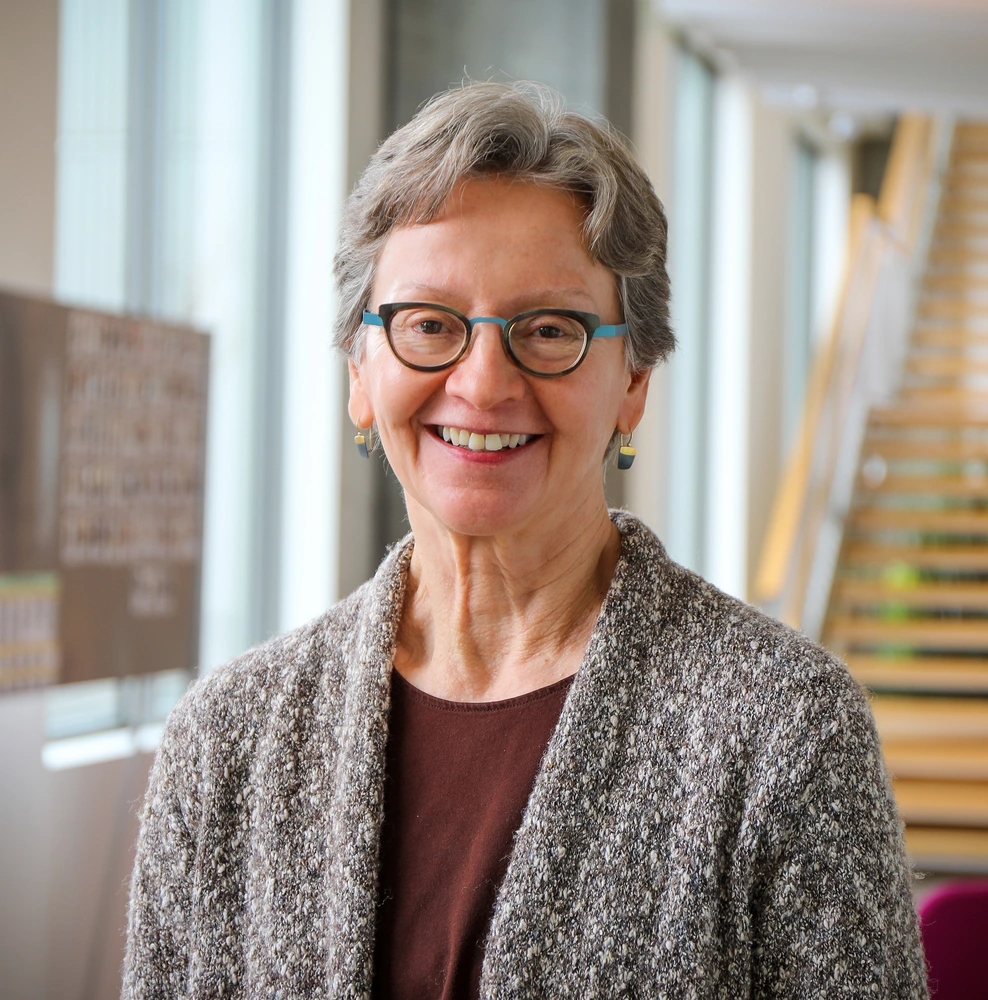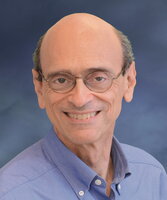
Dr. Michelle (Shelley) Barton’s remarkable career in cancer research, leadership, and graduate education is a testament to resilience, innovation, and an unwavering commitment to scientific advancement. As a researcher, she played a pivotal role in the discovery of TRIM24, a protein found in abnormally high levels in breast cancer and other cancers, which has profoundly shaped cancer research. The first in her family to attend college, she has also made an impact as a mentor to many students, postdoctoral researchers, and junior faculty throughout her decades in higher education.
Dr. Barton (BS '78, PhD '89, biochemistry) is one of seven outstanding alumni recognized by the College of Liberal Arts & Sciences as part of its 2025 alumni awards celebration. In addition to Dr. Barton, fellow biochemistry alum Dr. Keith R. Westcott (MS '78, PhD '80, biochemistry) is being honored this year. He will receive the LAS Dean’s Quadrangle Award.
Path to U. of I., molecular biology
Raised on a small family grain farm in Morgan County, Illinois, Dr. Barton learned early in life the value of hard work and responsibility. It was on the farm and in her small hometown where her intellectual curiosity was ignited and her passion for reading and education began. But the transition from a small, rural school to the Urbana-Champaign campus was not without some challenges.
"I went from a [graduating] class of 43 students to the University of Illinois, and that was a huge change," Barton said. Because she did not have the rigorous academic preparation that many of her peers did, she struggled in some of her courses. Initially a chemistry major on the pre-medicine track, she later switched to biochemistry which she found to be a better fit because of her love of biology. She was grateful to have had time in her schedule to enroll in literature classes, which nourished her love of reading and benefited her well-being.
Each summer she returned home to the farm, taking on multiple jobs to help pay for her education. After graduating with her bachelor’s degree, Dr. Barton became a research technician at Boston University’s medical school, where for the first time she gained real-life experience in a laboratory. A few years later, she and her husband returned to the University of Illinois so he could pursue a graduate degree in mathematics. She decided to take another lab technician position while she figured out what she wanted to do for a career.
“That was the best thing I ever did because that’s when I met [biochemistry professor] Dave Shapiro. That was life changing. He became a true role model because of his deep commitment to science and research ethics,” Barton said. “I discovered molecular biology through Dave.”
While working at the Shapiro lab, she took a course in microbiology, followed by another, receiving high marks along the way. Her success in these challenging courses led her to consider pursuing a career in academia, along with some prodding by lab mates and Dr. Shapiro.
After obtaining her PhD in biochemistry, she embarked upon a postdoctoral fellowship at the Salk Institute for Biological Studies followed by a faculty appointment at the University of Cincinnati. In 2000, she joined the University of Texas MD Anderson Cancer Center in Houston.
Epigenetics research, developing graduate education
For close to two decades at MD Anderson in Texas, Dr. Barton drove pioneering cancer research and trained the next generation of researchers.
Initially focused on biochemistry, she recognized its limitations in addressing DNA structure and transitioned into chromatin biology, now widely known as epigenetics. Among her many research achievements, she discovered TRIM24, a protein found at abnormally high levels in breast and other cancers. Her team demonstrated TRIM24’s unique dual role in cancer progression. The protein inhibits p53, the most commonly altered protein in all cancers, from repairing DNA damage and eliminating pre-cancerous cells, while also increasing the activity of estrogen receptor, which fuels the growth and spread of the most common form of breast cancer.
This work uncovered a new system that could be targeted for cancer treatment. Her research has not only expanded our understanding of cancer mechanisms but has also paved the way for developing small molecule inhibitors against TRIM24, offering a potential therapeutic breakthrough. Though not yet in clinical trials, her findings have been widely recognized. In recognition of her achievements, she was honored by election as a fellow in the American Association for the Advancement of Sciences and receipt of the Colin Powell Chair for Cancer Research at the MD Anderson Cancer Center. She also served as co-director of the Center for Stem Cell and Developmental Biology.
Her ability to lead, inspire, and drive meaningful change led to her appointment as dean of the Graduate School of Biomedical Sciences at MD Anderson, where she shaped the future of biomedical research and education. Dr. Barton’s philosophy in graduate education centered on establishing a diverse and respectful community for students that provides outstanding training and opportunities to excel. In 2015, the MD Anderson Cancer Center presented her with the Rogers Award for Excellence in Education.
A lasting impact
Dr. Barton's interest in mentoring and helping students from underrepresented groups is at the core of her work, and she continues to inspire generations of scientists to come. Today she is co-director of the Cancer Early Detection Advanced Research Center at the Knight Cancer Institute at Oregon Health & Science University. There, she oversees the biology side of a center that brings together biologists, bioengineers, and computationalists to focus on the difficult problem of detecting cancer early. Additionally, she heads the training of graduate students and postdoctoral fellows at the center.
These many experiences inform her service on the External Advisory Committee of the Cancer Center at Illinois, where she returns to the community that molded her.
“I am incredibly impressed with Cancer Center at Illinois as they bring Illinois’ prowess in engineering to intersect with outstanding basic scientists for innovative cancer research and training programs.” she said.
Receiving the LAS Alumni Achievement Award was an emotional moment for Dr. Barton. Reflecting on her experience as a first-generation student from a low-resourced community, she said, “I hope students will find supportive networks, build their self-confidence, and remain open to the possibilities that life offers.”
Looking back on her years at Illinois, Dr. Barton values her time at Illinois as more than a steppingstone in her career—it was a life-altering chapter that shaped her into the accomplished scientist and leader she is today.
